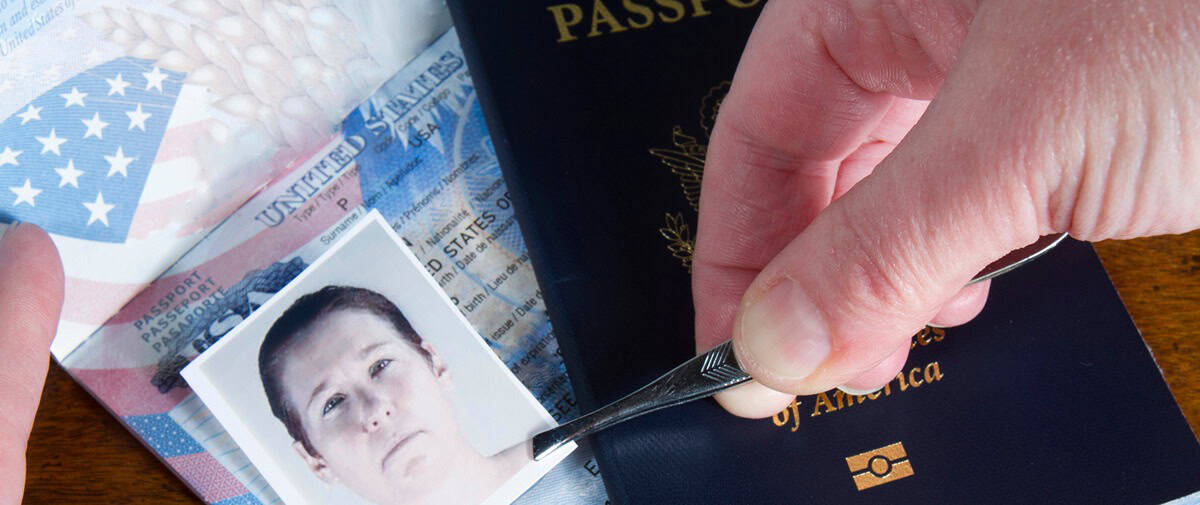Listen To This Page:
Quick Navigation:
- What Is Aggravated Identity Theft Under ARS 13-2009?
- Related Arizona Statutes Often Charged With ARS 13-2009
- Federal Charges for Aggravated Identity Theft: 18 U.S.C. § 1028A
- Penalties for Aggravated Identity Theft in Arizona
- Real-World Examples of Identity Theft Charges in Arizona
- Effective Defense Strategies to Fight Identity Theft Charges
- FAQs About Aggravated Identity Theft in Arizona
- Important Things to Remember About Identity Theft Charges
- Contact a Criminal Defense Attorney From CHM Law
Being charged with aggravated identity theft in Arizona is not just about accusations of stealing someone else’s name—it is often tied to larger financial crimes, fraud schemes, or attempts to conceal other illegal activity. Arizona takes identity-related crimes seriously, especially when they are committed in connection with additional offenses or when multiple victims are involved.
If you or a loved one is facing charges under ARS §13-2009, you could be looking at a felony conviction, mandatory prison time, and long-term consequences to your personal and professional life. Understanding how these charges are filed, what the state must prove, and the penalties involved is essential to building a strong defense. The good news is, with the right legal strategy and early intervention, you can fight back.
In this article, we will break down the specific language and application of Arizona’s aggravated identity theft statute, explain the differences between state and federal identity theft laws, discuss the penalties you could face, and outline the most effective defense strategies. We will also explore common related charges and what to expect from the legal process in Arizona.
Get Immediate Help from Our Criminal Defense Attorneys.
We are Available to Talk Now.
Or, Continue Reading Below About:
Aggravated Identity Theft Charges
What Is Aggravated Identity Theft Under ARS 13-2009?
Aggravated identity theft is defined under ARS §13-2009 as taking another person’s identity with the intent to obtain or use that person’s personal identifying information, and doing so:
- With the intent to obtain employment, access financial resources, or avoid prosecution,
- While committing another felony offense,
- Or by obtaining the identity of three or more people, whether living or dead.
ARS §13-2009 significantly increases the severity of ordinary identity theft under ARS §13-2008. Instead of being treated as a Class 4 felony (as with regular identity theft), aggravated identity theft is prosecuted as a Class 3 felony and carries a mandatory prison term.
This statute also allows for multiple counts if each identity used or taken involved a separate victim. That means the prosecution could stack charges, exposing defendants to longer sentences.
Related Arizona Statutes Often Charged With ARS 13-2009
Because aggravated identity theft rarely happens in a vacuum, prosecutors often file other charges alongside it. Here are the most commonly charged related statutes:
ARS §13-2008: Taking the Identity of Another Person
This is the lesser-included offense and covers any unauthorized use of someone else’s personal information to obtain goods, services, or anything of value. It is typically charged as a Class 4 felony.
ARS §13-2002: Forgery
Forgery applies when someone alters, creates, or uses a false document with the intent to defraud. It often accompanies identity theft cases involving fake checks, IDs, or contracts.
ARS §13-2310: Fraudulent Schemes and Artifices
This statute broadly criminalizes any scheme designed to defraud someone using false pretenses. It is a Class 2 felony and is frequently charged in financial fraud cases involving stolen identities.
ARS §13-2316: Computer Tampering
If identity theft is facilitated through hacking or unauthorized access to computers or databases, prosecutors may also file charges under this statute.
Each of these charges carries separate penalties and can be used to increase overall exposure or leverage plea deals.
Federal Charges for Aggravated Identity Theft: 18 U.S.C. § 1028A
When identity theft crosses state lines or involves federal interests (such as Social Security, immigration, or federal benefits), it may trigger federal charges.
18 U.S.C. § 1028A specifically targets aggravated identity theft. It carries a mandatory minimum sentence of 2 years in federal prison, to be served consecutively with any sentence for the underlying offense.
Examples of federal identity theft cases include:
- Using someone else’s identity to apply for federal student loans or tax refunds.
- Using fake identification during a federal criminal investigation.
- Stealing identities from government databases or employers.
The overlap between state and federal jurisdiction means a person could face prosecution in both systems.
Penalties for Aggravated Identity Theft in Arizona
A conviction under ARS §13-2009 carries a presumptive prison sentence and other serious consequences. Sentencing can vary based on criminal history and the number of victims.
Below is a breakdown
| Charge | Statute | Felony Class | Penalty Range (First-Time Offender) |
Key Distinctions |
|---|---|---|---|---|
| Identity Theft | ARS §13-2008 | Class 4 Felony | 1.5 to 3.75 years Presumptive: 2.5 years Probation eligible |
Unauthorized use of another person’s information for benefit Single victim cases without accompanying felony |
| Aggravated Identity Theft | ARS §13-2009 | Class 3 Felony | 2 to 8.75 years Presumptive: 3.5 years Enhanced if prior convictions or aggravating factors apply (A.R.S. §13-701) |
Involves another felony, 3+ victims, or intent to avoid prosecution/gain employment Harsher penalties and usually not probation eligible |
| Forgery | ARS §13-2002 | Class 4 Felony | 1.5 to 3.75 years Presumptive: 2.5 years |
Creating or using false written documents to defraud Common in check fraud and fake ID cases |
| Fraudulent Schemes and Artifices | ARS §13-2310 | Class 2 Felony | 3 to 12.5 years Presumptive: 5 years |
Broad charge involving any scheme intended to defraud Often added in white-collar or multi-victim identity theft cases |
| Computer Tampering | ARS §13-2316 | Class 6 to Class 3 Felony | Class 6: 0.33 to 2 years Class 3: 2 to 8.75 years |
Involves unauthorized access or use of computer systems Can be tied to data breaches or theft of digital identity info |
Real-World Examples of Identity Theft Charges in Arizona
Example 1: Employment Fraud
A man in Phoenix used a deceased person’s Social Security number to get a high-paying job. He was arrested after a background check flagged inconsistencies. He was charged under ARS §13-2009 due to the use of the identity to gain employment and was also charged with forgery.
Example 2: Multi-Victim Theft Scheme
A woman in Tucson stole personal information from multiple clients while working at a tax preparation service. She opened credit cards under their names and made purchases online. She was charged with aggravated identity theft involving more than three victims and faced multiple counts under ARS §13-2009 and 13-2310.
These examples show how the context and number of victims can escalate charges significantly.
Effective Defense Strategies to Fight Identity Theft Charges
Successfully defending against aggravated identity theft charges often involves challenging the intent or proving lack of involvement. CHM Law uses the following strategies:
1. Lack of Intent
The state must prove you knowingly used someone else’s identity for unlawful purposes. Accidental or mistaken use can be a strong defense.
2. Mistaken Identity or False Accusation
Sometimes, the wrong person is blamed. Surveillance footage, digital records, and alibis can help prove you were not involved.
3. Insufficient Evidence
If the evidence is circumstantial or improperly obtained, your attorney can move to have it suppressed.
4. Violation of Fourth Amendment Rights
Illegal searches or seizures without a valid warrant or probable cause can result in dismissal of key evidence.
5. No Underlying Felony
For charges under ARS §13-2009 to stick, prosecutors must prove the theft occurred in conjunction with another felony. If not, the charge may be reduced to a lesser offense.
At CHM Law, we carefully evaluate the case for procedural errors, inconsistencies, and weaknesses to build a strategic defense.
FAQs About Aggravated Identity Theft in Arizona
⑴ Can I be charged with identity theft if I used someone else’s ID without making a purchase?
Yes. Even using someone else’s identification for work or to avoid arrest can result in criminal charges.
⑵ What makes identity theft “aggravated” under Arizona law?
The theft becomes aggravated if it involves multiple victims, another felony, or is done to avoid prosecution or gain employment.
⑶ Can I face both state and federal charges?
Yes. If your case involves federal agencies or crosses state lines, both state and federal prosecutors may pursue charges.
⑷ Is there a way to avoid prison time?
With strong legal representation and depending on the facts of your case, diversion, plea deals, or reduced charges may be available.
⑸ What should I do if I am under investigation but haven’t been charged?
Do not speak to law enforcement without an attorney. CHM Law can advise you and potentially intervene early in the process.
Important Things to Remember About Identity Theft Charges
- Aggravated identity theft is a felony with mandatory prison time in Arizona.
- Using more than one person’s identity or committing another felony makes the charge more severe.
- You may also be charged under federal law with additional penalties.
- Related charges such as forgery or fraud are often filed alongside.
- Early legal representation can reduce your exposure to multiple felony convictions.
Contact a Criminal Defense Attorney From CHM Law
Facing aggravated identity theft charges under ARS §13-2009 is serious, but you do not have to fight it alone. The attorneys at Colburn Hintze Maletta understand how Arizona prosecutors build these cases—and how to dismantle them.
Our team has years of experience successfully representing clients accused of identity theft, fraud, and related offenses. We know what to look for in discovery, how to negotiate reduced charges, and how to present a powerful defense in court.
When your future, freedom, and reputation are on the line, you need a team that is strategic, compassionate, and unafraid to challenge the state. CHM Law offers free one-on-one consultations to review your case and help you understand your best options.
Call us today at (602) 825-2500 to schedule your free consultation.

Timothy Hintze is a well-respected and aggressive trial lawyer having represented clients in courts throughout the state of Arizona. He has litigated hundreds of criminal matters ranging from complex felony cases to misdemeanor offenses, as well as a dedicated advocate for family law clients. Tim was also awarded the distinction of being named a Super Lawyers Rising Star and selected by the National Trial Lawyers Association as a Top 40 Under 40 Attorney.
Always Available 24/7 for Legal Help
Schedule an Appointment Today!
Call Us Now to Speak with an Attorney (602) 825-2500
Real Client Reviews
Below are just a few of what our clients have to say!








